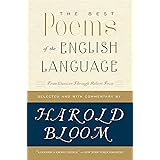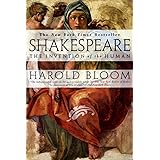
Enjoy fast, free delivery, exclusive deals, and award-winning movies & TV shows with Prime
Try Prime
and start saving today with fast, free delivery
Amazon Prime includes:
Fast, FREE Delivery is available to Prime members. To join, select "Try Amazon Prime and start saving today with Fast, FREE Delivery" below the Add to Cart button.
Amazon Prime members enjoy:- Cardmembers earn 5% Back at Amazon.com with a Prime Credit Card.
- Unlimited Free Two-Day Delivery
- Streaming of thousands of movies and TV shows with limited ads on Prime Video.
- A Kindle book to borrow for free each month - with no due dates
- Listen to over 2 million songs and hundreds of playlists
- Unlimited photo storage with anywhere access
Important: Your credit card will NOT be charged when you start your free trial or if you cancel during the trial period. If you're happy with Amazon Prime, do nothing. At the end of the free trial, your membership will automatically upgrade to a monthly membership.
Buy new:
-26% $26.02$26.02
Ships from: Amazon.com Sold by: Amazon.com
Save with Used - Acceptable
$12.98$12.98
Ships from: Amazon Sold by: Rim Country Books

Download the free Kindle app and start reading Kindle books instantly on your smartphone, tablet, or computer - no Kindle device required.
Read instantly on your browser with Kindle for Web.
Using your mobile phone camera - scan the code below and download the Kindle app.

The American Canon: Literary Genius from Emerson to Pynchon Hardcover – October 15, 2019
Purchase options and add-ons
No critic has better understood the ways writers influence one another—how literary traditions are made—and no writer has helped readers understand this better, than Harold Bloom. Over the course of a remarkable sixty-year career, in such bestselling books as The Western Canon, Shakespeare: The Invention of the Human, and How to Read and Why, Bloom brought enormous insight and infectious enthusiasm to the great writers of the Western tradition, from Shakespeare and Cervantes to the British Romantics and the Russian masters. Now, for the first time, comes a collection of his brilliant writings about the American tradition, the ultimate guide to our nation’s literature.
Assembled with David Mikics (Slow Reading in a Hurried Age), this unprecedented collection gathers five decades’ worth of Bloom’s writings— much of it hard to find and long unavailable—including essays, occasional pieces, and introductions as well as excerpts from his books. It offers deep readings of 47 essential American writers, reflecting on the surprising ways they have influenced each other across more than two centuries. The story it tells, of American literature as a recurring artistic struggle for selfhood, speaks to the passion and power of the American spirit.
All of the visionary American writers who have long preoccupied Bloom―Emerson and Whitman, Hawthorne and Melville, and Dickinson, Faulkner, Crane, Frost, Stevens, and Bishop―make their appearance in The American Canon, along with Hemingway, James, O’Connor, Ellison, Hurston, Le Guin, Ashbery and many others. Bloom’s passion for these classic writers is contagious, and he reminds readers how they have shaped our sense of who we are, and how they can summon us to be better versions of ourselves. Bloom, Mikics writes, “is still our most inspirational critic, still the man who can enlighten us by telling us to read as if our lives depended on it: Because, he insists, they do.”
For readers who want to deepen their appreciation of American literature, there's no better place to start than The American Canon.
- Print length436 pages
- LanguageEnglish
- PublisherLibrary of America
- Publication dateOctober 15, 2019
- Dimensions6.22 x 1.1 x 9.27 inches
- ISBN-101598536400
- ISBN-13978-1598536409
The Amazon Book Review
Book recommendations, author interviews, editors' picks, and more. Read it now.
Frequently bought together

Similar items that may deliver to you quickly
Editorial Reviews
Review
“Ambitious, authoritative, and certainly arguable, Bloom’s compendium is an achievement of immense use and interest to literature students and general readers alike.” —Publishers Weekly
"He stands for a rare intellectual purity, being not only a kind of shaggy saint in his devotion to literature but also ... a gadfly, a doomsayer and a great teacher."
—Michael Dirda, The Wall Street Journal
"...an impressive and important look at what he sees as the core of American literature."
—PopMatters.com
About the Author
David Mikics is the Moores Distinguished Professor of English at the University of Houston. He is the editor of The Annotated Emerson and the author, most recently, of Bellow's People and Slow Reading in a Hurried Age. His reviews and articles have appeared in Tablet, the New Republic, and the New York Times.
Product details
- Publisher : Library of America; Annotated edition (October 15, 2019)
- Language : English
- Hardcover : 436 pages
- ISBN-10 : 1598536400
- ISBN-13 : 978-1598536409
- Item Weight : 1.54 pounds
- Dimensions : 6.22 x 1.1 x 9.27 inches
- Best Sellers Rank: #268,546 in Books (See Top 100 in Books)
- #213 in General Books & Reading
- #860 in Essays (Books)
- #3,125 in Short Stories Anthologies
- Customer Reviews:
Customer reviews
Customer Reviews, including Product Star Ratings help customers to learn more about the product and decide whether it is the right product for them.
To calculate the overall star rating and percentage breakdown by star, we don’t use a simple average. Instead, our system considers things like how recent a review is and if the reviewer bought the item on Amazon. It also analyzed reviews to verify trustworthiness.
Learn more how customers reviews work on Amazon-
Top reviews
Top reviews from the United States
There was a problem filtering reviews right now. Please try again later.
In his “Preface” Makics describes his selection in these words: “I have chosen to represent the figures about whom Bloom has made his strongest argument and have omitted some well-known figures toward whom he displayed mixed feelings in his criticism.” “Tried to represent” might have been more candid. For example, as regards the avoidance of “mixed feeling,” the Bloom reading on Edward Albee, which mentions only "Zoo Story" and "Who’s Afraid of Virginia Woolf," says of the latter that it is “hardly for all time.” Regarding omitted “well-known figures,” of the 9 U.S Nobel Prize winners only O’Neal, Hemingway, Faulkner and Morrison are included. Readings, though almost invariably excellent, do not always seem optimally selected, as where the Pynchon is represented by a selection that refers only to "Gravity’s Rainbow" and "The Crying of Lot 49," despite Bloom’s reference to "Mason & Dixon" in his “Introduction” to Novelists and Novels as “one of the four grand narratives composed by living Americans.”
Both Bloom fans and newcomers will find much to enjoy in "The American Canon." However, those seeking word from Bloom on his favorites in a form free of possibly excessive excisions can proceed to "Novelists and Novels" and parallel tomes on the epic, the short story, the play, the essay and the poem.
The book is divided into four sections, each covering a specific era of American literature from the colonial period to the present day. Bloom provides a detailed analysis of fifty works and their authors, including Nathaniel Hawthorne, Walt Whitman, Emily Dickinson, William Faulkner, and Toni Morrison. He examines these works through the lens of an “agonistic” reading, wherein he emphasizes the competitive elements of each piece. These competitive elements may take the form of internal or external conflicts that are addressed within the texts, such as the struggle for identity, the tension between individualism and social conformity, or the challenge of artistic creation.
Bloom’s prose is erudite but accessible, and his insights are consistently thought-provoking. He offers a wealth of knowledge on each of the authors and works he covers, but he never overwhelms the reader with excessive scholarly jargon. His enthusiasm for literature is infectious, and he encourages readers to seek out these works for themselves.










